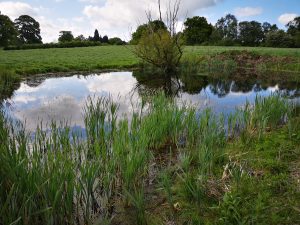The Role of Phase 1 Habitat Surveys in Streamlining Property Development
When planning a property development project, understanding the environmental implications is as important as the architectural and logistical aspects. Phase 1 habitat surveys play a vital role in this understanding, providing an essential foundation for effective project planning and execution.
A phase 1 habitat survey is a standardised method for classifying and mapping habitats and potential species present within a site. This survey forms the initial ecological appraisal of any site earmarked for development. By providing a comprehensive overview of the biodiversity present, these expert assessments allow property developers to integrate environmental considerations into their project from the start.
These habitat surveys can help streamline the property development process in several ways. First and foremost, they contribute significantly to effective planning. With an understanding of the ecological assets present, developers can tailor their plans to protect and enhance these assets. For example, the survey might highlight areas of high ecological value that should be preserved, or areas that could be enhanced through appropriate landscaping or habitat creation.
In addition to informing project design, they also play a crucial role in the planning approval process. Local planning authorities often require ecological information about a site to assess a development proposal, with phase 1 habitat surveys being a widely accepted method of providing this information. By conducting a survey early in the process, developers can demonstrate their commitment to ecological responsibility, potentially smoothing the path to planning approval.
Another key benefit of phase 1 habitat surveys is that they can identify potential ecological constraints to a project. The survey might uncover the presence of protected species or habitats that could pose legal or logistical challenges. By identifying these early, developers have the opportunity to adjust their plans accordingly, avoiding costly delays or changes further down the line.
Moreover, these surveys provide the basis for more detailed ecological studies if required. For example, if the presence of a protected species is suspected, a more detailed phase 2 survey can be carried out. In this way, the phase 1 survey helps manage the risk associated with environmental factors, allowing developers to plan effectively for potential complexities.
In conclusion, phase 1 habitat surveys are a vital tool for property developers. By providing a clear understanding of the ecological aspects of a site, they enable effective planning, support the planning approval process, identify potential constraints, and manage environmental risk.
If you are a property developer planning a new project and want to understand how phase 1 habitat surveys can streamline your development process, please get in touch with our team of experienced ecology consultants. We’re here to help ensure that your project strikes the right balance between development and conservation.
In an era of unprecedented ecological challenges, biodiversity offsetting has emerged as a key tool for harmonising economic growth with environmental preservation. This approach seeks to balance the impact of development on nature, ensuring that any damage to one area is compensated by enhancement or protection of another. But what does biodiversity offsetting really entail,…
With growing global awareness around environmental conservation, the fulfilment of biodiversity net gain requirements has become increasingly integral in the world of property development. These requirements, designed to promote sustainable development practices, are now an essential consideration for law firms, property agents, landowners, and developers. This article explores what biodiversity net gain requirements are, why…
In the competitive world of property development, a Biodiversity Net Gain (BNG) consultant is fast becoming an indispensable asset. Providing specialist advice and insight, they guide developers, law firms, property agents, and landowners through the complexities of sustainable development. But what can a biodiversity net gain consultant do for your project? How can they ensure…
As we grapple with the global environmental crisis, the concept of biodiversity credits is gaining recognition in the world of property development. Biodiversity credits offer a practical and innovative approach to balancing the necessities of development with the urgency of ecological conservation. As law firms, property agents, landowners, and property developers navigate their projects, understanding…
For property developers and landowners, navigating environmental compliance can be a complex task. One important, yet often overlooked, component of this process is the bat survey. Conducting a bat survey is more than a due diligence task—it’s a crucial step in demonstrating compliance with environmental regulations, and therefore essential for any responsible development project or…
- « Previous
- 1
- 2


